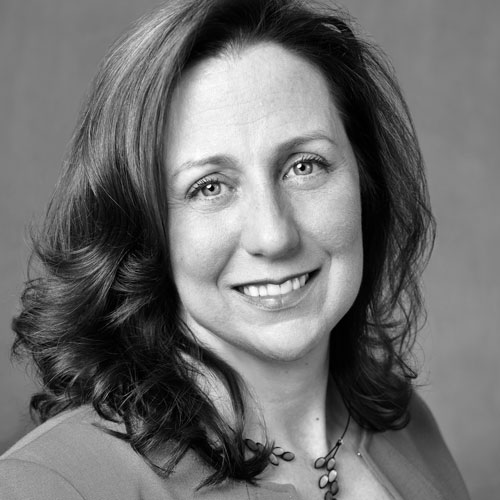David Whitehead gazes out across his farm in Cavendish, Vermont.
Complete with an orchard and vineyard, the eighty-five-acre landscape is about a three-hour drive north from his hometown of Norwich, Connecticut. It’s almost ironic that Whitehead has chosen this place as his retirement destination, whenever that time comes, as his entire life has figuratively been rooted in giving back to his community.
From seeing his parents volunteer in the community to working as the president and publisher of his hometown newspaper to then serving as president and CEO of The William W. Backus Hospital, it’s fair to say that his tireless involvement in his community is ingrained in his DNA.
“That concept of giving back just rooted itself within my core. So intrinsically, I have this deep motivation to give back to the community,” he says.
Today, Whitehead still lives in Norwich, a small city forty miles from Hartford, Connecticut, where he serves as executive vice president and chief strategy and transformation officer of Hartford HealthCare—Connecticut’s most comprehensive healthcare network. Since joining Hartford HealthCare after Backus Hospital’s affiliation with the system in 2013, his roles have varied somewhat, but no matter his title or responsibilities, he lives by a key mantra: the patient always comes first.
“Everything we do must center around the patients we serve,” Whitehead says. “The support mechanisms that we put in place for them and for their families need to tie together with all of the service provisions that we have clinically.”
Whitehead has been in the healthcare industry since 1999, and although he has always had a focus on putting patients first, it was in 2007 when he became a patient and survivor himself that emphasized his focus on the patient journey. That year, he was diagnosed with prostate cancer at forty-seven years old, and he experienced everything from diagnosis to the mental and physical preparation for treatment. But it wasn’t just his journey as a patient that shaped him. He and his wife have five children, who at the time ranged in age from ten to twenty-five years old, so the journey was shared with his family.
“It helped me to gain a deeper understanding of what we could do at Backus Hospital, what we needed to do, and what we must do to better serve patients and their families as they’re on that particular journey of achieving survivorship,” Whitehead says.
Whitehead experienced that journey again shortly after, when his mother had a severe heart attack. Then, during her triple bypass surgery, it was discovered that she had stage IV lung cancer and died three days before Whitehead took over as president and CEO of Backus.
“To lose her that quickly just further motivated me around this issue of what can we do for members of our community both preventively, diagnostically, and procedurally,” Whitehead says. “And then from a survivor perspective, it’s making sure we’re moving their health status in a positive direction, or at the very least, maintaining their health status without further decline.”
Whitehead brought that same mind-set with him to Hartford HealthCare after the affiliation. He describes Hartford HealthCare’s approach as an ongoing and engaging relationship between the health system and the people it serves, both for patients and nonpatients. For example, a person can be engaged with the health system by being enrolled in Hartford HealthCare’s weekly news updates, being subscribed to one of its digital media platforms, or attending one of the health system’s community or health education events.
“At some stage, that customer relationship generates the patient interaction,” Whitehead says. “That’s because we’re engaged. We’ve created that relationship that they’re looking for us to be the provider of care for them when they find themselves in the patient condition.”
That is an extension of Hartford HealthCare’s vision to be the most trusted provider in personalized, coordinated care. For Hartford, that takes place both within the healthcare system and in the community at large. In the past, understanding the root cause of health status within a community had been difficult when trying to assess social determinants such as health, housing, food access, food quality, security, and education. Now, with data and analytics, Whitehead and his staff at Hartford HealthCare can hone in on root causes of these determinants and then provide further healthcare education and support.
For example, diabetes education programs can take place throughout the system, but now hospitals may be able to focus on a particular area, even a particular zip code, where diabetes is rated highest. From there, they can assess what the social determinants are and understand the root cause of diabetes within that community to provide care and education.
“To me, that is the work that we have underway that I believe will help reshape health status within the communities that we serve throughout Hartford HealthCare,” Whitehead says. “It’s not going to happen overnight. It’s a journey, but you have to start by looking at it from that perspective.”
Having an ingrained concern for the community doesn’t stop with Whitehead, though; he says it’s the culture at Hartford HealthCare that cultivates those values of giving back. In fact, on any given morning, there could be close to six hundred daily huddles that take place in work units across Hartford HealthCare recognizing staff achievements and focusing on process improvement for patients.
“It’s about giving Hartford HealthCare’s team—which is nineteen thousand strong—an operating model in which they’re informed and they’re
problem-solving at the closest point of contact to the patient,” Whitehead says. “We have embraced lean daily management within this organization. It is part of our daily operating model.”
It’s clear that much has evolved in the healthcare industry since Whitehead first entered it in 1999. But whether it’s when he first started, now as an executive leader, or in a few years when he settles down in Vermont, one truth has always been apparent: the desire to serve others.
“The thing I love about the people I have worked with in the past, the present, and I know in the future when it comes to healthcare, is the intrinsic calling to want to serve people,” he says. “I have not come across anyone I’ve worked with in my nineteen years in healthcare who I believe came into this industry just because they needed a job. They really came into healthcare because they have this tremendous calling to serve.”


